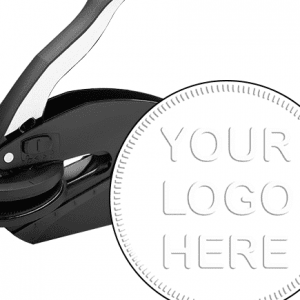Second in a series of articles on the creation of Don’t Think So Much. Exposing yourself to the unbiased eye of your editor will be a humbling, but super valuable, experience.
Generating 45,000 words of prose for the first draft of a book is not as difficult as it may sound. Filling out a nicely structured Table of Contents was a helpful way of breaking the work up into bite-sized chunks. In addition, the astute reader will note that there are sections of the book lifted from my past work on Maker Turtle (previously known as cazh1.com). The challenge with this approach, however, is the end result: a pile of words that are related in concept, but do not cohere into a single work.
Not to worry, as I fully expected this. As the work progressed I could see (and “hear”) a certain amount of dissonance. Some sections were written in first person, like a story from my past. Others were written in second person, like a conversation. There were other issues I knew I had to address – overuse of key phrases, and overcoming my habit of semi-formally capitalizing proper nouns (like Operations, Customers, and Products) as if they were elements of a contract or entities in a schema. I was aware of a few literary tics that I have developed over the years, and knew that I had to do one pass through the whole document to clean those things up.
This was another repeating chunk of work that I had to smash through – the next big step in the process. But I did not set up a daily tracking spreadsheet for this – I had moved my planning efforts to an online Kanban system, and I was happily setting up cards with checklists, keeping the steady drumbeat of work going. It only took a few weeks to produce what I naively considered a finished book.
Enter the Editors
I had done enough reading and learning about self-publishing to know that I needed an external editor. I was a little reticent at first, as I have been writing on the web and on the job for many years, and received plenty of positive, validating feedback. I have also taken the constructive criticism gladly, and my writing style has morphed over the years to a level that high confidence. Regardless – the audacity of attempting a complete book, and the length and breadth of the writing that had to hold together, was uncharted territory for me. I needed a higher level of review, something that I had not subjected myself to in the past – and so, I was a little nervous.
I ended up getting two external editors; I worked my network to find a professional editor (Catherine Driscoll, RED Communications) that was local, and had experience with self-publishing. Why local? I firmly believe in remote work and virtual organizations, but those early kickoff meetings needed to be face-to-face, so we could make sure we were thinking in the same direction. Why experienced? This was going to be a significant element of cost for my little publishing “startup”, but I rationalized this by connecting with someone who could also accelerate my learning and provide a little confidence.
But why stop at one editor? I gave my sister (Marcia Dwyer) a call and asked for a favor – she is an ex-schoolteacher, has done a decent amount of writing and speaking, and would be an excellent third pair of eyes. Plus, she worked for free … of course, I figure I will be in her debt for some time, she’ll get me for the next family-oriented favor …
After setting up a process for sharing files and tracking their edits, we set off. My primary request of them was to be Copy Editors – focused on proper structure and punctuation, consistent style, and effective structure (I learned all about Chicago Style vs. AP Style). To a lesser extent, they worked as Content Editors, focused on the understandability and effectiveness of the information.
The Harsh Bright Light of Open, Honest Feedback
You probably suspect what my great insight will be from this part of the story…
I was taken aback by some of the edits, really floored at the amount of changes they were suggesting. I tend to write in long, complex sentences, which could be difficult to parse; I think I am something of a poet, and at times I get a bit carried away. And I have an annoying habit of starting sentences with the word “and”; I know exactly where that comes from, it’s a conversational tactic for more inclusive discussions. It can be an acceptable and effective writing technique, but I was overdoing it to an embarrassing extreme.
Truth be told, none of this was embarrassing. I am very confident that my personal style – in communication, leadership, and design – is a blend of inputs, impressions, and uncredited samples from many sources. I know from experience that I get better when I listen to feedback. I often give this suggestion to people that I work with; if I cannot heed my own advice, what good is it?
Granted, neither of these editors had much experience in the world of Digital Business and enterprise transformation. There were many edits and suggestions around content that they did not understand (What is a skunkworks? Design thinking? Monetization? FTEs?). I had to invest some time explaining these concepts, and assuring them that my target audience would understand these references.
But I was not entirely psyched about all of the feedback I received. And a few weeks into the process, I had an interesting revelation. I was treating both of them as teachers, laboring under the misconception that there was a “correct” way of writing. But there is a certain amount of my true voice that comes through in my writing, and I wanted to stick with that – even though it is not according to Hoyle (or, in this case, the Chicago MoS) correct prose. Sometimes, ya just go with what works.
Overall, I am very grateful for their efforts. The book is so much better because of their input – and as I suspected, it has changed the way I write, on the Web and on the job. The first of many unanticipated benefits of this project.
On to the world of publishing …
This is one of a series of articles on the creation of Don’t Think So Much; check out the finished book on Amazon.
25 September, 2019
- The Book Is Out!
- Don’t Think So Much … an Author’s Journey
- An Author’s Journey – First, You Write a Book …
- An Author’s Journey – The Editor’s Harsh Bright Light
- An Author’s Journey – The Decision to Self-Publish






This Post Has 0 Comments